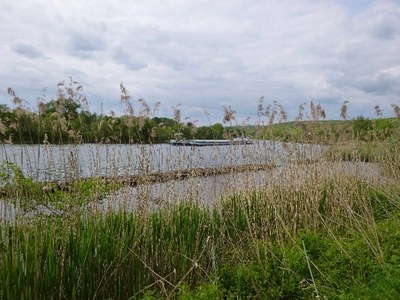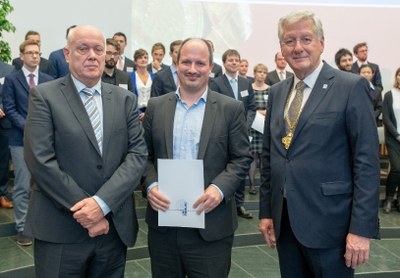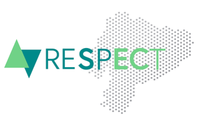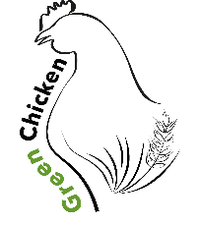Department of Landscape Ecology and Resources Management
Department of Landscape Ecology and Resources Management
- Professorship of Landscape Ecology and Landscape Planning (Prof. Dr. Till Kleinebecker)
- Professorship of Landscape, Water and Biogeochemical Cycles (Prof. Dr. Lutz Breuer)
- Professorship of Waste Management and Environmental Research (Prof. Dr. Stefan Gäth)
Professorship of Landscape, Water and Biogeochemical Cycles
Projects
RESPECT
Kili-SES
Green Chicken
Landscape, Water and Biogeochemical Cycles
Prof. Dr. Lutz Breuer
Tasks and Goals
As the Chair of the Dept. of Landscape, Water and Biogeochemical Cycles, Prof. Dr. Lutz Breuer and his department explores different challenges in water management, along with identifying pollutants and nutrients in various bodies of water. An additional focus of the department is on modeling the flow of water and nutrients.
The international nature of the research promotes the cooperation of scientists from around the world. International Students and doctoral candidates contribute significantly to the cultural exchange and friendly atmosphere!
This department is highly interdisciplinary, with lectures, excursions and projects being essential parts of both research and learning.
Stop in, look around and take part!
Lectures
Overview over the lectures and courses offered by the chair of Landscape, Water and Biogeochemical Cycles
Lectures and courses offered
The chair of Landscape, Water and Biogeochemical Cycles offers a variety of lectures and courses for undergraduate students (B.Sc.). For further information please have a look at:
- Madatory course (Kernmodul) for the program Umweltmanagement
- Elective courses (Profilmodule) for all bachelor programs of the department
- A translation of the German module titels is also available
Information on lectures and courses designed for graduate students can be found here:
- Mandatory courses (Kernmodule) for the program Umweltwissenschaften
- Most elective courses (Profilmodule) for all master programs of the department are offered in German and some in English
- A translation of the German module titels is also availabe
Current lectures and courses
The lectures and courses of the current semester are listet in the lecture calendar. Registration and lecture material is provided on StudIP.
Student research projects
Of course students have the opportunity to conduct a research project for their bachelor's or master's thesis with the working group of Landscape, Water and Biogeochemical Cycles. Topics can be found here.
Professorship of Waste Management and Environmental Research
Waste Management and Environmental Research
Prof. Dr. Stefan Gäth
Scope of the Institute
The Institute of Landscape Ecology and Resources Management (ILR) was founded in the early 1950´s and looks back at a long tradition of research and teaching.
The Division of Waste Mangement and Environmental Research was founded in 1996. It focuses on the investigation of matter dynamics and optimization of matter cycles. The incorporation of a Division of Waste Management in the Department of Agriculture and Environmental Protection offers the opportunity to investigate vegetable and animal foodstuffs during their entire lify cycle, i.e. during production, consumption, and disposal or recycling.
The aim to complete matter cycles is a central aspect of the German waste management law (Krw-/AbfG, 1996), which prescribes the preference of recycling in contrast to disposal of wastes, which are unavoidable. The recycling of organic wastes from domestic, agricultural and industrial sources (e.g. via application to soil) generally leads to a reasonable recirculation of nutrients to the food chain. However, as the organic wastes also contain various harmful substances, recycling also bears the risk of pollutant accumulation in the resource cycle.
In research and education, the Division focuses on the above-mentioned question of pollutant accumulation in matter cycles. The main task is to define the pollution load capacity of the investigated systems in order to achieve information on sustainable resource management. Further, the Division is involved in current topics on waste management practices.
Come and see...!
Technical equipment
The Institute of Landscape Ecology and Resources Management has experience in several physical and chemical survey methods. Both, field and laboratory experiments can be conducted with emphasis in investigations on soil, water, compost and sewage sludge.
The following methods are currently available:
Physical methods:
- dry matter
- bulk density
- solid substance density
- saturated hydraulic conductivity
- unsaturated hydraulic conductivity
- pore volume, pore space distribution
- gas-diffusion
Chemical methods:
- pH-value
- electric conductivity
- organic matter
- C:N-ratio
- carbon content
- cation exchange capacity (CEC)
- nutrients (e.g. N, P, K, Mg, Ca, K)
- heavy metals (e.g. Pb, Cd, Cr, Cu, Ni, Hg, Zn)
- biological oxygen demand (BOD) and chemical oxygen demand (COD)
- odorous substance


















